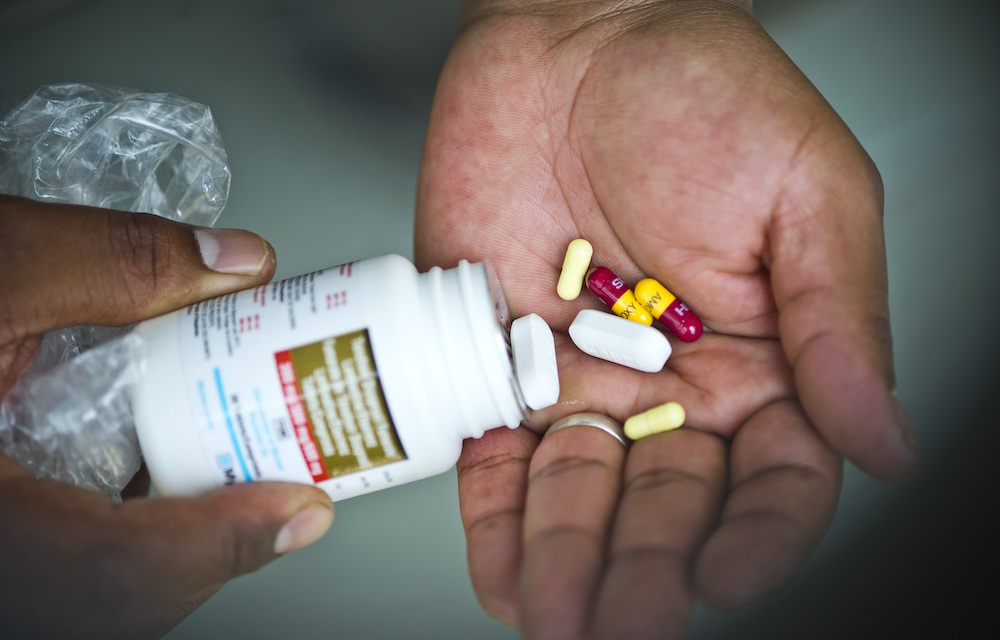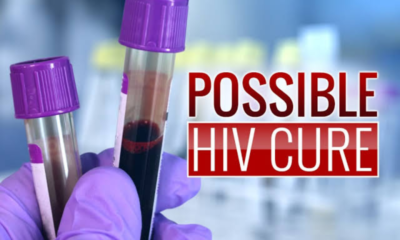News
Kenya To Start Manufacturing ARVs Locally
“We have a local manufacturing plant for ARVs but need approvals to work with regulatory bodies to enable manufacturing not only for local but also global markets,” Dr. Amoth stated.

Kenya is gearing up to initiate local manufacturing of antiretroviral (ARV) drugs, aiming to supply both its domestic needs and potentially the global market.
This development comes at a crucial time, following the uncertainty caused by U.S. President Donald Trump’s recent 90-day pause on foreign aid, which could impact funding for programs like PEPFAR, a major financier of Kenya’s HIV initiatives.
Director General for Health, Patrick Amoth, has expressed the government’s intent to explore new funding avenues to support this venture. “We have a local manufacturing plant for ARVs but need approvals to work with regulatory bodies to enable manufacturing not only for local but also global markets,” Dr. Amoth stated. This initiative aligns with broader goals to achieve what Health Cabinet Secretary Dr. Deborah Barasa described on social media platform X as “Maturity Level 3 stability,” essential for enhancing the exportation of locally manufactured health products.
The stakes are particularly high for Kenya’s 1.3 million HIV-positive individuals, including nearly 890,000 women and 71,000 children under 14. With 97% of registered cases currently on antiretroviral therapy, achieving high viral suppression rates is critical. However, the country’s heavy reliance on external funding – which accounted for about 63.5% of the HIV program’s budget in 2021-2022 – underscores the urgency of this local production effort.
This isn’t Kenya’s first foray into local drug manufacturing. In 2019, plans were announced for a facility to treat 300,000 patients, aiming to cut the annual HIV medication budget from Sh38 billion while also manufacturing drugs for malaria and tuberculosis. However, the progress of this initiative has been opaque, with ministry officials not available for comment on its current status.
The path to local ARV production is fraught with challenges. A 2023 study by The Kenya Legal and Ethical Issues Network on HIV and AIDS highlighted several barriers, including weak policy frameworks, inadequate infrastructure, limited financial resources, and insufficient political support. The study also pointed out the complexities in maintaining WHO manufacturing standards, especially when sourcing from less regulated markets like India.
The Kenyan government’s efforts have been criticized for lacking consistent political will, with policies often working at cross-purposes, thus complicating local manufacturers’ participation in the market. “The landscape for sustainable, resilient local production of ARVs in Kenya is not promising at the moment,” the study concluded, despite the availability of expertise and lessons from the Covid-19 response.
Moreover, researchers from the Kenya Medical Research Institute have warned that without robust contingency plans, Kenya’s progress towards its “95-95-95” HIV/AIDS targets by 2030 could falter. These targets aim for 95% of all people living with HIV to know their status, 95% of those diagnosed to receive sustained antiretroviral therapy, and 95% of those treated to achieve viral suppression.
To move forward, collaboration with international bodies like the World Health Organization, and local regulatory agencies such as the Pharmacy and Poisons Board Kenya, will be vital in ensuring that locally produced ARVs meet global standards.
As Kenya navigates these challenges, the success of local ARV manufacturing will not only be a test of its health infrastructure but also of its resolve to reduce dependency on foreign aid and foster a self-sustaining health sector.
Kenya Insights allows guest blogging, if you want to be published on Kenya’s most authoritative and accurate blog, have an expose, news TIPS, story angles, human interest stories, drop us an email on [email protected] or via Telegram
-

 Business1 week ago
Business1 week agobetPawa Empire Crumbles: Mr Eazi’s Betting Gambit Unravels Amid Partner’s Shadowy Deals
-

 News5 days ago
News5 days agoDCI Probes Meridian Equator Hospital After Botched Procedure That Killed a Lawyer
-

 Business1 week ago
Business1 week agoKRA Boss Humphrey Watanga In Big Trouble In Sh5.5 Billion Rice Import Scandal
-

 Investigations2 weeks ago
Investigations2 weeks agoKERRA Homa Bay Region Manager Calvince Thomas Accused of Swindling Businessman Ksh 2 Million in Phantom Tender Deal
-

 Business4 days ago
Business4 days agoMinnesota Fraud, Rice Saga, Medical Equipment Deal: Why BBS Mall Owner Abdiweli Hassan is Becoming The Face of Controversial Somali Businessman in Nairobi
-

 Business1 week ago
Business1 week agoState Set to Demolish Pastor Ng’ang’a’s Church in Sh28 Billion Railway City Push
-

 Business2 weeks ago
Business2 weeks agoTreasury’s Sh40 Billion Safaricom Gamble Could Cost Kenya Trillions, Auditor Warns
-

 Business6 days ago
Business6 days agoControversial Turkish Firm Celebi Canceled in India Over Security Concerns Acquires Strategic Property in Nairobi’s Main Airport

























